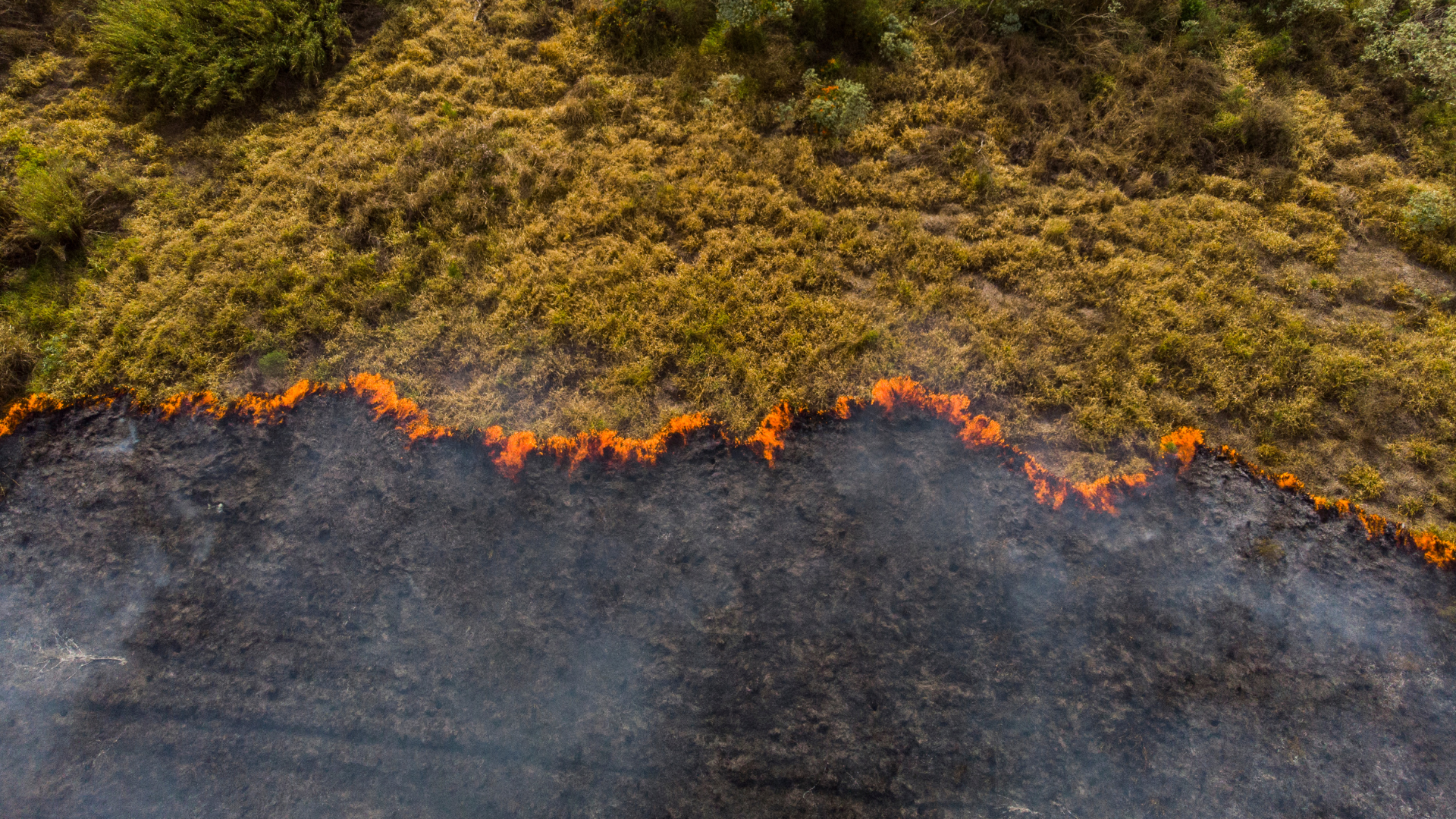- Sectors
- Aerospace & Defense
- Big science
- Fintech
- Insights

The biotechnology team at ARQUIMEA Research Center, the research division of the technology company ARQUIMEA, has taken a decisive step in its commitment to restoring soils affected by wildfires; an increasingly urgent environmental issue in Spain and around the world. After several cycles of laboratory testing, the center has validated a microbial consortium capable of accelerating the regeneration of fire-damaged soils while simultaneously stimulating plant growth, offering a natural and sustainable solution for the recovery of fire-affected ecosystems.
In its most recent trials, conducted in the lab using soil samples collected from the 2023 Tenerife wildfire, the bacterial consortium, designed and produced by the center itself, demonstrated strong potential to activate the microorganisms responsible for soil regeneration. Despite the fact that the samples were taken from severely degraded areas, with high levels of contaminants and very little organic matter, the tests showed that the consortium not only boosts bacterial diversity during the initial phases, but also naturally fades over time, allowing native soil bacteria to recover.
In addition to its powerful bioremediation capabilities, laboratory tests on tomato plants revealed that the bacterial consortium supports seed germination, enhances root system development, and promotes higher water retention, which translates into improved tomato fruit quality compared to untreated crops.
“Plants grown in fire-affected soils and treated with our consortium showed a superior metabolic profile compared to untreated ones, suggesting direct benefits for both soil and plant health,” says María Vasseur, project lead at ARQUIMEA Research Center.
One of the key features of the developed product is its high production capacity, enabling rapid, cost-effective, and large-scale manufacturing.
“We’ve developed a product composed of a bacterial consortium capable of generating billions of viable units in under 24 hours. This means our consortium can be produced quickly at volumes suitable for real-world soil recovery campaigns,” Vasseur explains.
To facilitate field deployment, the team has developed the product in powder form—easy to store, quick to apply, and adaptable to different soil types and climate conditions.
These advances are particularly relevant in the current context of worsening climate emergencies, especially in countries like Spain, where wildfires are becoming more frequent, intense, and widespread—posing a direct threat to biodiversity, food security, and rural economies. Since natural soil recovery after fire can take decades, developing solutions that can accelerate this process sustainably has become both an environmental and strategic priority.
With these promising results, the team is preparing to move their research into the field, with trials in real ecosystems across the Canary Islands. The goal is to evaluate the effectiveness of the microbial consortium in natural and local environments where vegetation recovery is both urgent and critical.
“At ARQUIMEA, we firmly believe that science can and must serve the territory. We would love to collaborate with Canarian institutions to move forward together with real solutions to a problem that has already become global,” says Jorge Rapp, researcher in the Biotechnology division.
Based in Tenerife, the research center reaffirms its commitment to developing high-impact, sustainable technologies aimed at restoring natural ecosystems—particularly in a world increasingly affected by climate change.